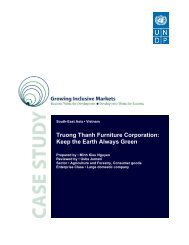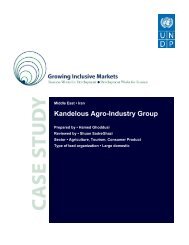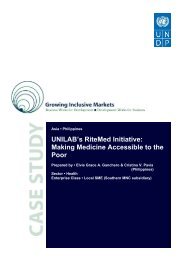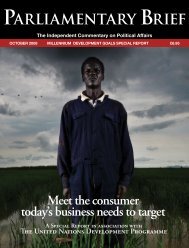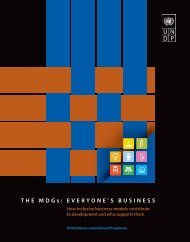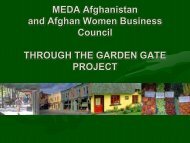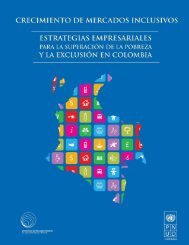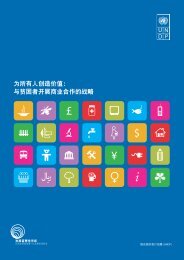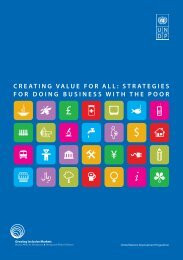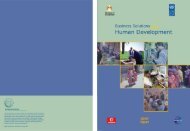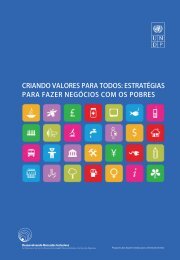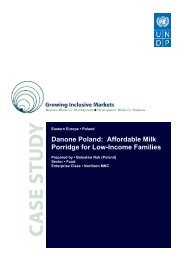Edipack: a Paper Recycling Pioneer - Growing Inclusive Markets
Edipack: a Paper Recycling Pioneer - Growing Inclusive Markets
Edipack: a Paper Recycling Pioneer - Growing Inclusive Markets
You also want an ePaper? Increase the reach of your titles
YUMPU automatically turns print PDFs into web optimized ePapers that Google loves.
Affected by the economic crisis and the resulting decrease in the demand for paper, <strong>Edipack</strong>is currently looking into new market opportunities such as entering the vegetable and fruitpackaging market or the high quality packaging market in Albania.Background“In Albania, unfortunately, many people just throw their garbage on the ground and besidesrudimentary recycling they certainly don’t see the wider environmental and economic benefitsof recycling.”Dan Berg, Head of the EBRD office in Albania 1During the course of the last decade, Albania started developing democratic and marketinstitutionsalong with its Balkan neighbors. Pro-business and environmental policies, rootedin the Albanian constitution, have slowly emerged. 2 Albania was the last country in theWestern Balkans to start creating its democratic institutions in 1992 and still remains one ofthe poorest countries in Europe, with a GDP per capita of $6,000 at purchasing power parity. 3Until the economic crisis, its economy was growing steadily at over 5 percent per year. Atthe same time, many Albanians worked in Greece or Italy and supported the country withlarge remittances, which constituted up to 15 percent of the GDP. 4 Despite the high growthand remittances from abroad, 12.4 percent of population lives below the poverty line(although this number is half of what it used to be). 5 Approximately 3.5 percent of Albaniansstill live in extreme poverty with incomes of less than one dollar per day, and disparitiesbetween urban and rural areas are significant. 6As for the environmental situation, the United Nations Environment Programme identifies theabsence of solid waste management as “an enormous and readily apparent problem inAlbania”. 7 The adoption of a market economy with an increase in imports combined withrapid population growth and urbanization has led to a considerable increase in the amount ofwaste and put additional stress on an almost non-existent waste management system. As aconsequence, unmanaged and illegal dumpsites or uncontrolled incineration of waste aregrowing risks to the health of the Albanian population.1 Braterman, N., & Xhunga, M. (2009, January 12). <strong>Edipack</strong>: <strong>Paper</strong> recycling comes to Albania.Retrieved August 10, 2009, from http://www.ebrd.com2 UNEP. (2000). Post-Conflict Environment Assessment - Albania. Geneva: UNEP. Pgs 6 and 14.3 Agency, C. I. (n.d.). Country Comparison GDP per capita (PPP). Retrieved August 10, 2009, fromhttp://www.cia.gov4 Ibid.5 State, U. D. (2009, June). Background Note: Albania. Retrieved August 3, 2009, fromhttp://www.state.gov6 UNDP Albania. (2009). Retrieved 2009, from http://www.undp.org.al7 UNEP. (2000). Post-Conflict Environment Assessment - Albania. Geneva: UNEP, fromhttp://enrin.grida.noCaselet • <strong>Edipack</strong>: a <strong>Paper</strong> <strong>Recycling</strong> <strong>Pioneer</strong> 3



